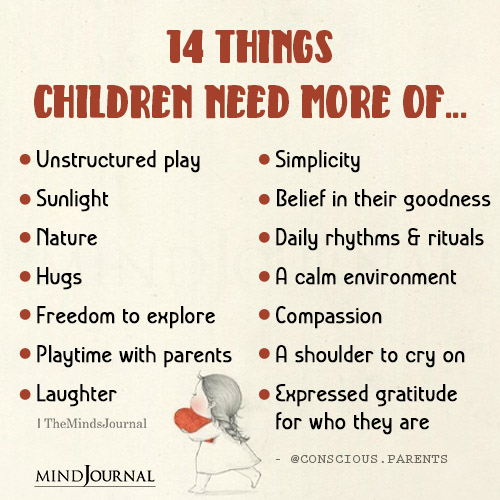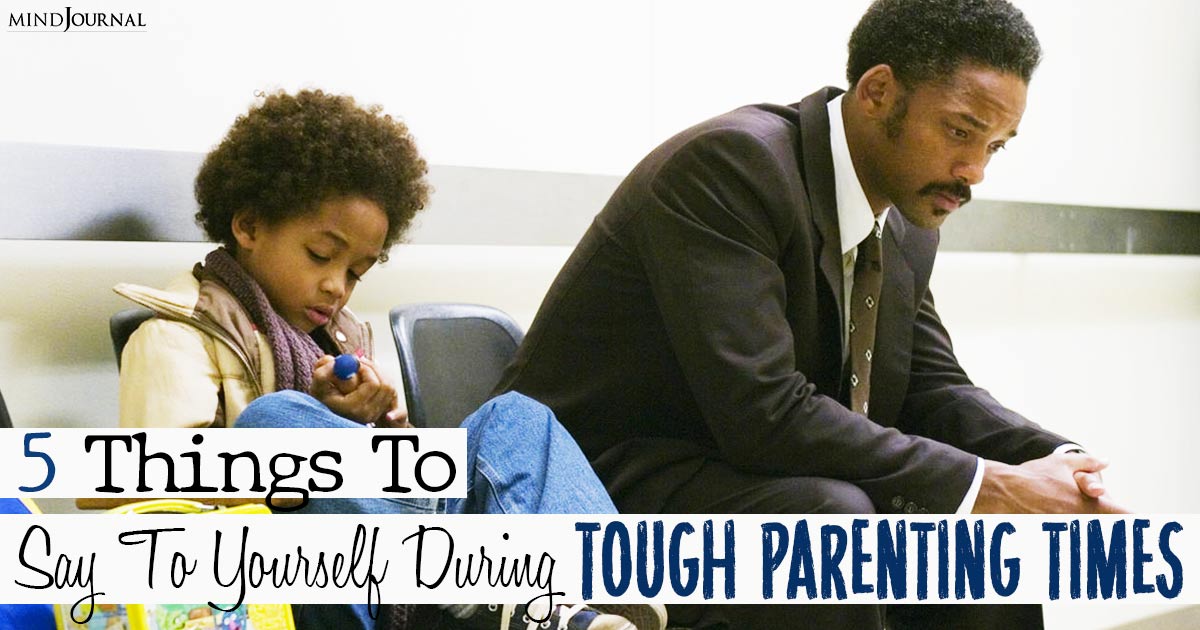Staying calm when handling your children, especially when they’re throwing tantrums and are emotionally charged up, can be a tough task to deal with. Tough parenting times can sometimes take a toll on you, and in order to manage that effectively, these are the five things to say to yourself during tough parenting times. Let’s explore that, shall we?
KEY POINTS
- When children cry, have a tantrum, or act up and it can’t be “fixed” right away, it’s easy for a parent to feel helpless.
- People who feel helpless often act impulsively.
- It’s powerful to assume that a child’s troubling behavior is an attempt at communication.
I came across a beautiful Instagram post by mom.ma.g about how she stays calm and empathic during tough moments with her daughter. Over a video of her and her crying child, she shares the words she repeats to herself after taking a deep breath:
1. She is not giving me a hard time, she is having a hard time.
2. The calmer I am, the more effective I’ll be.
3. There is no misbehavior. She is trying to tell me something important.
4. This probably feels like a really big deal for her.
5. Help, don’t hurt. I can do this.
Related: 3 Things Emotionally Intelligent Parents Do
While she is saying those things silently to herself, we hear her say these words softly to her daughter:
1. Can I hug you?
2. I understand you’re feeling so sad right now.
3. Okay.
4. You can cry. Yes, you can cry.
5. I’m here.
These two sets of internal and external phrases convey so much. Let’s look at them one by one.
5 Things to Say to Yourself During Tough Parenting Times
1. She is not giving me a hard time, she is having a hard time.
This is a powerful reframe. When our children cry, have a tantrum, or act up and we can’t “fix it” right away, it’s easy to feel helpless.
Helplessness can instantly turn to defensiveness as we interpret the situation as a threat: You’re giving me a hard time. You’re driving me crazy. You’re ruining my day.
But children never want to give us a hard time. They just want us to know they are having a hard time.

2. The calmer I am, the more effective I’ll be.
I like this reminder because most of us were told repeatedly to “calm down” as children when we had good reason to be upset, angry, or excited. Now, when we try to tell ourselves to calm down, we resist and rebel against that.
If we remember that the reason to calm down is to be effective, not to shut off our feelings, then it’s easier to follow through and get calm.
3. There is no misbehavior. She is trying to tell me something important.
This is probably the single most important reframe that parents can make. What if there is no such thing as misbehavior? Then we see clearly that punishments, consequences, and time-outs are a dead end.
Behavior is important in communication. Newborn babies don’t have expressive language, so we may be upset by their crying, but we don’t demand that they “use their words.” But once children are verbal, we expect them to always use language.
However, deep feelings are often impossible to put into words, even for adults. It’s so much more true for young children. It’s powerful to assume that troubling behavior is an attempt at communication—the child’s best possible attempt—and we can endeavor to understand it.
Related: 10 Expert Advice For Parenting Today’s Teens That You Must Follow
4. This probably feels like a really big deal for her.
A teacher told me that her school was implementing a new curriculum in social-emotional learning. One of the elements of this program was to teach children they should have “big feelings for big things and small feelings for small things.”
This made no sense to me. It does not match how emotions work, at any age. We all have giant feelings over seemingly small things. Instead of telling children to tone down their feelings to match our assessment of the situation, we can recognize that for whatever reason this “small thing” is actually very big.
5. Help, don’t hurt. I can do this.
When we feel helpless, we often act impulsively. After all, we have to do something. But this reminder to help, not hurt, can stop us from saying and doing things that will make the situation worse, such as yelling or separating in anger.
A reminder to ourselves that we can do this can inspire us to remember hard moments we have handled well in the past.
5 Things You Can Say To Your Child During Tough Parenting Times
1. Can I hug you?
Now we turn to five helpful things we can say to a child who is emotionally distraught or has done something troubling. Once we remember that it’s not misbehavior and that our job is to remain calm, a hug makes perfect sense.
The offer says: We are still connected. The hug sets off a whole cascade of soothing in the nervous system. Hugs aren’t “rewarding bad behavior” because there is no bad behavior happening. There is just emotional overload.
2. I understand you’re feeling so sad right now.
We are so eager for our children to feel better. Right now. That’s because our children’s pain hurts us, and our helplessness in the face of that pain hurts. But our task is not to change the feeling.
It’s to see the child’s feelings and let them know you see it. Ironically, empathy like this is the fastest way for the feeling to complete.
3. Okay.
So much power in one simple word. Notice that this mom did not say “You’re okay,” which is presumptuous—we don’t know if she’s really okay.
In this context, “okay” means “I’m okay” with whatever it is you feel right now, and “We’re okay” because this emotion or behavior is not going to destroy our connection.
Related: How To Help Children Cope With Anger And Angry Feelings
4. You can cry. Yes, you can cry.
The child does not need the parent’s permission to cry. Even though this is said out loud to the child, the real purpose for saying it is to remind yourself that tears are healing. Tears get the sad out.

5. I’m here.
This is the essential message every child needs to hear, over and over, especially when they are so flooded with emotion that they fall apart or behave poorly.
Sign up for Lawrence J. Cohen’s newsletter by emailing “subscribe” to [email protected].
Written By Lawrence J. Cohen Originally Appeared On Psychology Today










Leave a Reply